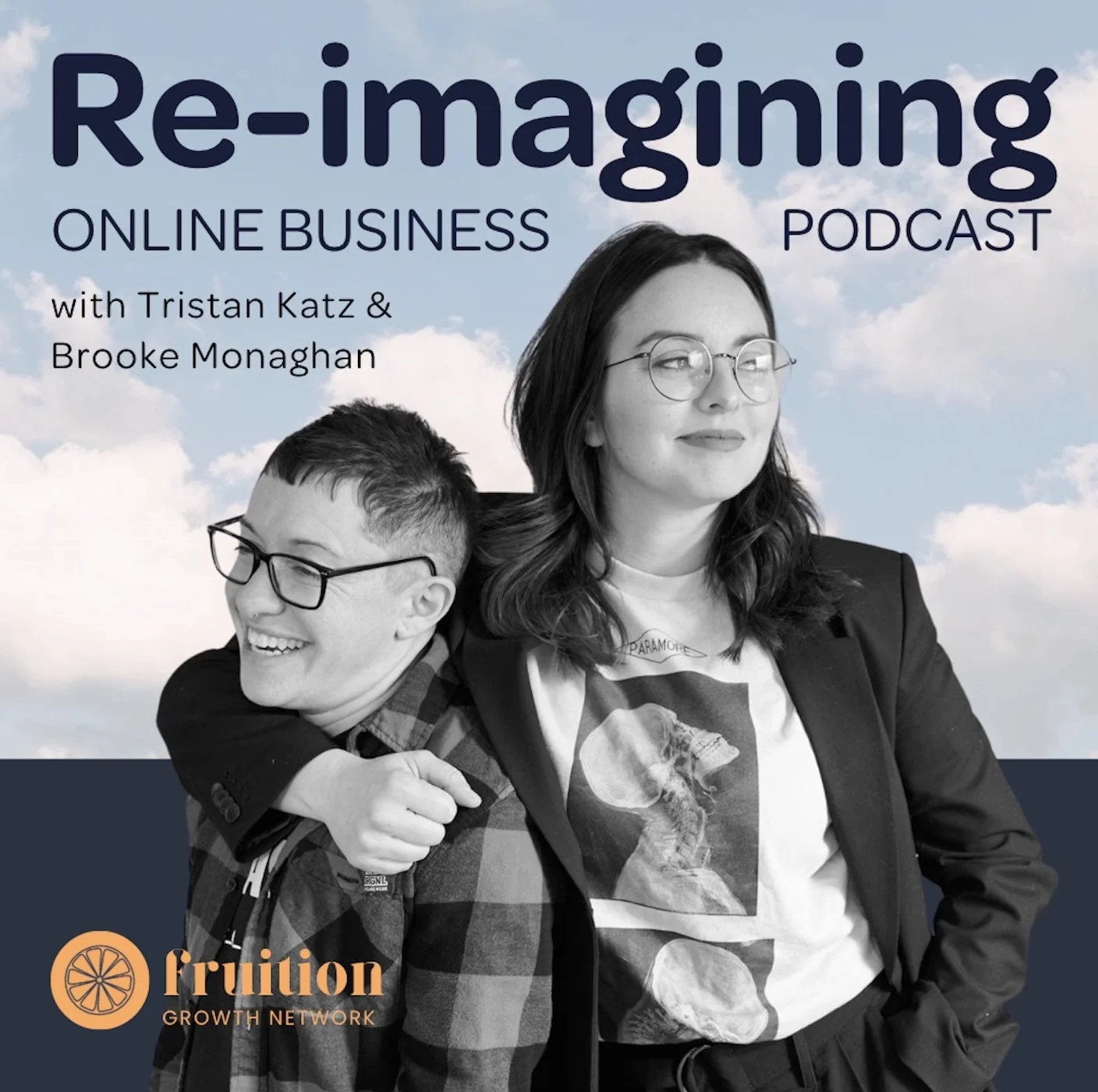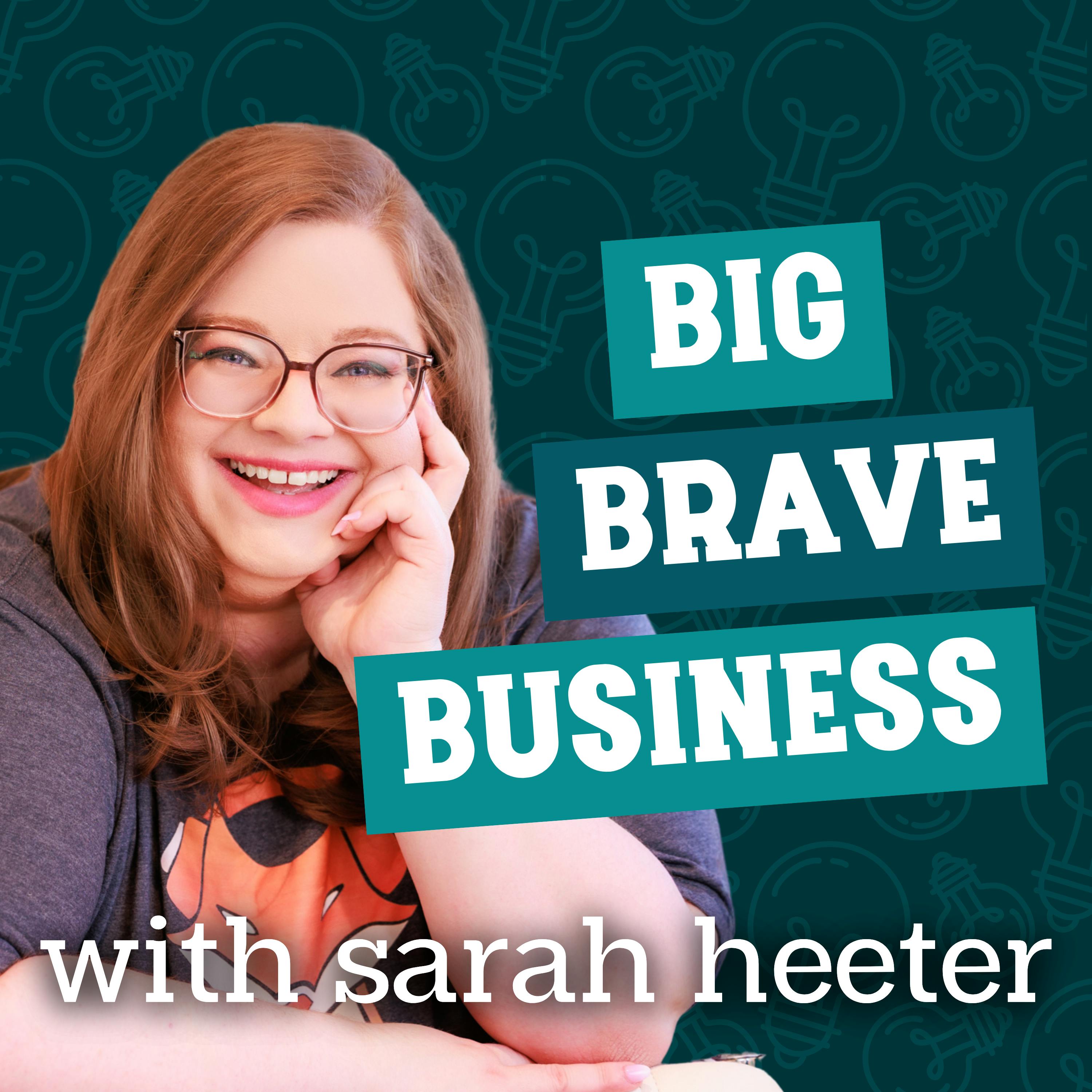.png)
Here's What I Learned: Ditching Biz-as-Usual for Values, Freedom, and Doing It Your Way
Welcome to Here's What I Learned, the podcast for progressive entrepreneurs ready to grow their businesses without sacrificing their values, creativity, or sanity. Hosted by me, Jacki Hayes—a systems strategist, unapologetic smutty romantasy fan, and D&D geek—this show is your go-to space for honest conversations about what it really takes to create a business and life you love.
Each week, we dive into relatable stories and actionable lessons from values-driven leaders who’ve figured out how to scale sustainably while staying true to themselves. Whether you’re managing growth, navigating overwhelm, or rethinking hustle culture, this podcast is here to show you that success doesn’t have to mean burnout.
If you value integrity, autonomy, and time freedom—and you’re looking for inspiration that’s as practical as it is empowering—you’ve found your people. Hit play, and let’s rewrite the rules together.
Here's What I Learned: Ditching Biz-as-Usual for Values, Freedom, and Doing It Your Way
Small Shifts That Support You When Work Slows Down
If business feels quieter right now—more space, fewer deadlines—you’re not alone. And you’re definitely not doing it wrong.
In this solo episode, I’m sharing the small shifts that have helped me (and the solopreneurs I work with) navigate slow seasons with clarity and care. This isn’t about scaling or optimizing every minute of downtime. It’s about noticing what’s already working… and gently building from there.
Whether you’re neurodivergent, guided by Human Design, or just tired of hustle-mode being the default, this episode is an invitation to move differently.
Here’s what I cover:
- Why systems already exist—even if you haven’t written them down (04:07)
- The power of rhythms over routines, especially for energy-led planning (11:22)
- What scaffolding looks like when you’re overwhelmed or foggy (08:38)
- How I build boundaries into my client processes—without overexplaining (16:43)
- What your business safety net could look like at 60% capacity (20:58)
- Micro-shifts that support Projectors, Generators, and neurodivergent solopreneurs (06:55)
This episode is a reminder: slow seasons don’t mean you’re falling behind. They mean you finally have space to shape the business that holds you.
What next?
- Follow Here's What I Learned on your favorite podcast player
- Leave a review so the podcast is seen by more people like you
- Share this episode with a friend
Say hi!
- Follow me on Instagram at @jackihayes_obm
Credits:
Intro and Outro Music: Atomic by Alex-Productions |https://onsound.eu/
Music promoted byhttps://www.free-stock-music.com
Creative Commons / Attribution 3.0 Unported License (CC BY 3.0)
Hey there. Welcome to Here's What I Learned. I'm Jacki Hayes, assistant strategist, unapologetic smutty romantasy lover, Dungeons and Dragons Geek, and your no BS guide to building a business that works for you. This is the place where we swap stories, share lessons, and get real about the highs and lows of creating a life and business that actually feels good.
No cookie cutter advice here, just honest conversations about what's working, what's not, and how to rewrite the rules to fit your version of success. So grab your favorite beverage, get comfy, and let's dive in.
Hey, welcome to another episode of Here's What I Learned. If business feels quieter right now, more space, fewer deadlines, you are not alone and you're not doing it wrong. Slow seasons can feel like a gift and a disruption. You finally have time to look at your business, but the question becomes what now?
This episode is for that moment. We're not talking about scaling, overhauling, or optimizing your downtime. This is about noticing what's already there and gently building on it. No pressure, no three-step plans. Just a few thoughtful shifts I've seen help solopreneurs like you move through slower seasons with clarity and without turning themselves into a productivity project. So let's get started.
If you've done something more than once in your business, it's a system. Even if you never wrote it down, even if it changes every time, even if you cobbled it together on the fly when things were busy and just kept doing it, the structure already exists. It just may not be working for you yet.
For Generators and Mani Gens especially, this might look like following what felt good in the moment. Now you're left with a workflow that doesn't quite align anymore. And if you're neurodivergent holding too many pieces in your head can quietly drain you even if you're good at it. So pause and ask, what am I keeping going with memory alone?
And what's the smallest adjustment that would give this more stability? Not a full rebuild, just a soft realignment. There's often a moment maybe every week where things slow down, where you avoid a task or hit a weird friction point, and the instinct is often to assume you are the problem, that you are stuck or undisciplined or inconsistent.
But usually it's a missing piece of structure, a decision that's being asked over and over again. Projectors and Reflectors often feel this deeply. Repeating something that doesn't feel aligned is exhausting, but even for non HD folks, it's the repetition without clarity that wears you out. What if instead of fixing it, you slowed it down and watched it?
Where do you hesitate? What exactly is missing there? Build a default path, not a rule, just a way forward when your energy dips and your brain is foggy. For neurodivergent solopreneurs, even a three step starter path, like when I'm stuck on this thing, I first try X, then I check Y. If I'm still stuck, I do Z or I Pause.
Can take a task from overwhelming to doable. It's not about solving everything, it's about offering yourself scaffolding. There's a lot of pressure to have morning routines and CEO days and perfectly color coded calendars. I'm guilty of the last one, but here's the thing. Routines are rigid. Rhythms are honest.
If you're a Manifester, you probably already resist routines. If you're a Generator or Mani Gen, rhythm can keep you anchored without forcing you into sameness. And for anyone whose executive function varies day-to-day, a rigid routine might actually be the thing that breaks momentum, not builds it. So instead of trying to perfect your schedule, ask what pattern already exists here and what would support it, not override it.
Maybe it's not time blocking, it's energy matching. Maybe it's not themed days. It's one daily anchor. Test one rhythm one and name it like a reminder, not a rule. For example, right now I'm trying to start the day with one thing I know I can finish. Afternoons are for admin only if I have the energy and no new tasks after 2:00 PM unless it lights me up.
Flexible structure is still structure and sometimes is exactly what gets you through the fog. Let's talk about everybody's favorite boundaries, especially in a season where it might feel like opportunities are scarce and you're worried about saying no to the wrong thing in quiet times. It's tempting to say yes to everything, but here's the thing.
Boundaries don't have to sound like barricades. You can be firm and still warm, clear, and still collaborative. One of the phrases I return to is. That's not something I can take on right now, but here's what I can offer. If you're someone with an open emotional center or just someone who tends to over explain, hello, you don't have to defend your capacity.
Just name it, trust it. And if you're a generator, this is where following your gut response, not your guilt reflex can change the way you set up your business entirely. Here's a reframe. Your offers aren't set in stone. The way you deliver your work can evolve, not because you need to give more, but because you deserve to deliver in a way that feels good to you.
Start by asking two questions. Which part of my offer do I rush, dread, or avoid? What am I doing because I think I should. This applies to everyone, but it's especially powerful for Projectors and neurodivergent solopreneurs. If something in your offer drains you every single time, it's not a sustainable offer.
Try subtracting one thing even temporarily, even just as an experiment, you can always add it back, but you might not need to. Last thing. When your capacity drops, what holds your business together? I'm not talking about the perfect Clickup board, although I'm trying to create one or 14 step automation.
I'm talking about the bare minimum. What needs to happen even when you're at 60%. Maybe it's one client check-in. Maybe it's sending one newsletter a month. Maybe it's logging into your invoicing system once a week, name it. Make it visible. Write it down in the way you access information. Best visual board checklist, voice memo, doesn't matter.
This is your business safety net. Not a system to control you, but one to support you. And for reflectors especially, the ability to notice what's truly essential, each cycle helps you stay grounded, not scattered. That's it. You don't need to do everything differently. You don't need to overhaul your offers or rewrite your systems overnight.
But if something here sparked recognition, pause with it. Test it. Follow your strategy and authority. Move gently. Slow seasons don't mean you're failing. They mean you finally have space to shape the business that holds you. Let's build with that kind of care.
Talk to you soon.
Thanks for hanging out with me on Here's What I Learned. If today's episode gave you an aha moment, a laugh, or something to think about, make sure you're subscribed to my email list. That's where I share even more tips, stories and behind the scenes insights to help you simplify and thrive. And remember, you get to do business and life your way.
Until next time, keep experimenting, keep simplifying, and keep learning.
Podcasts we love
Check out these other fine podcasts recommended by us, not an algorithm.

Mistakes That Made Me
Eman Ismail
Re-Imagining Online Business
Fruition Growth Network
Messy Liberation: Feminist Conversations about Politics and Pop Culture
Becky Mollenkamp and Taina Brown

